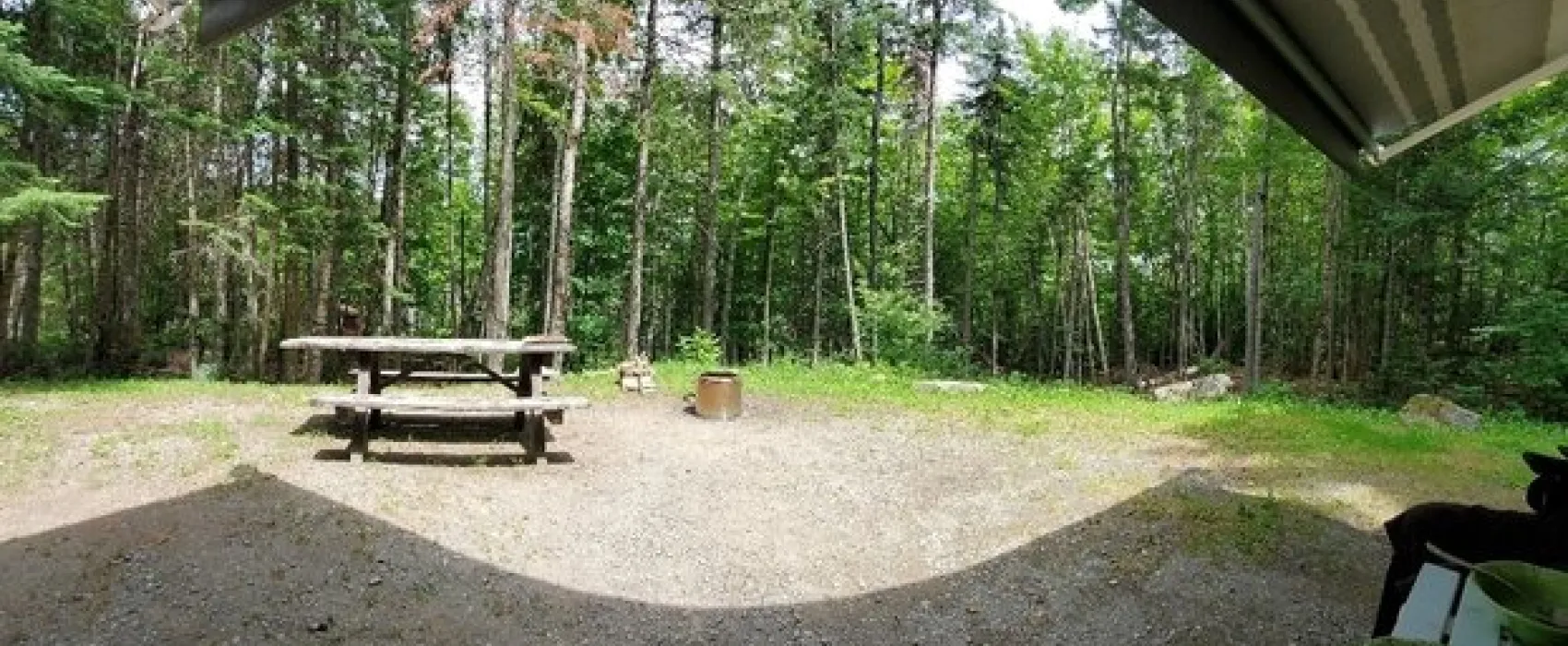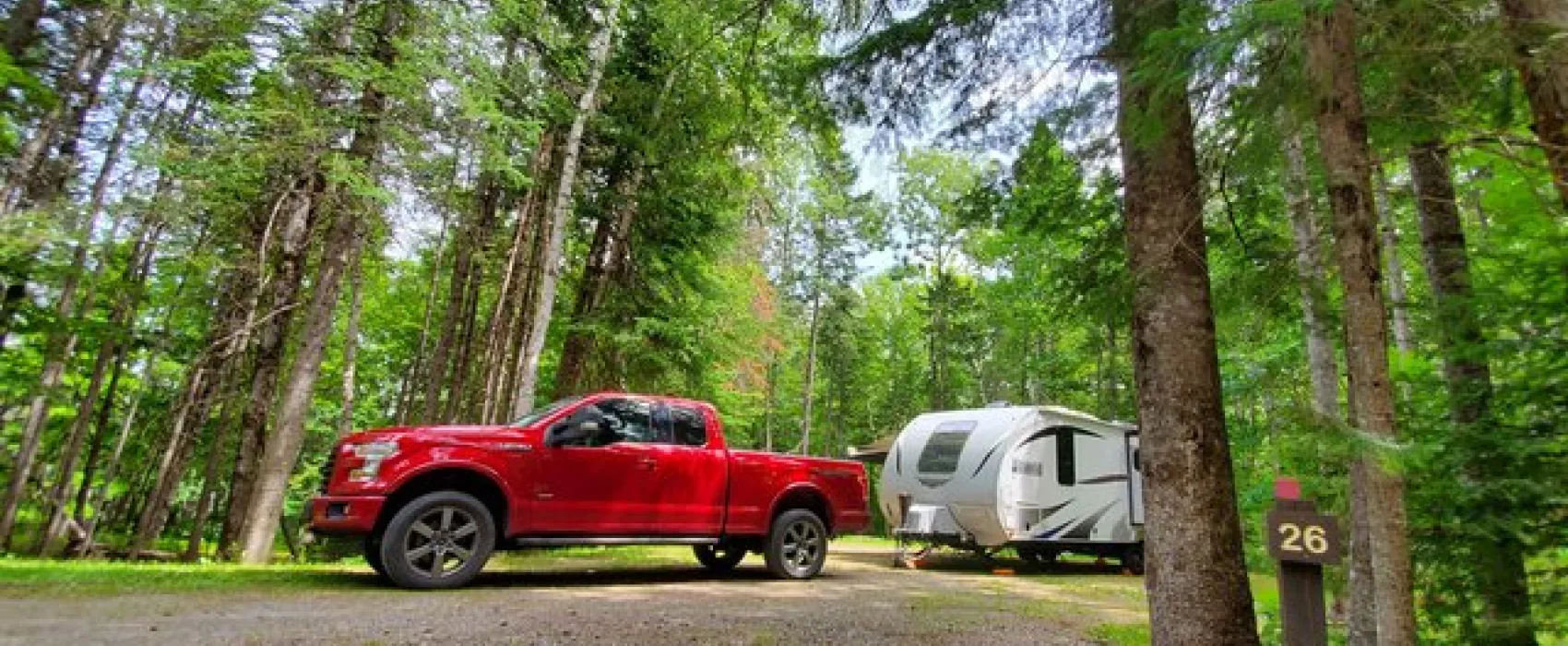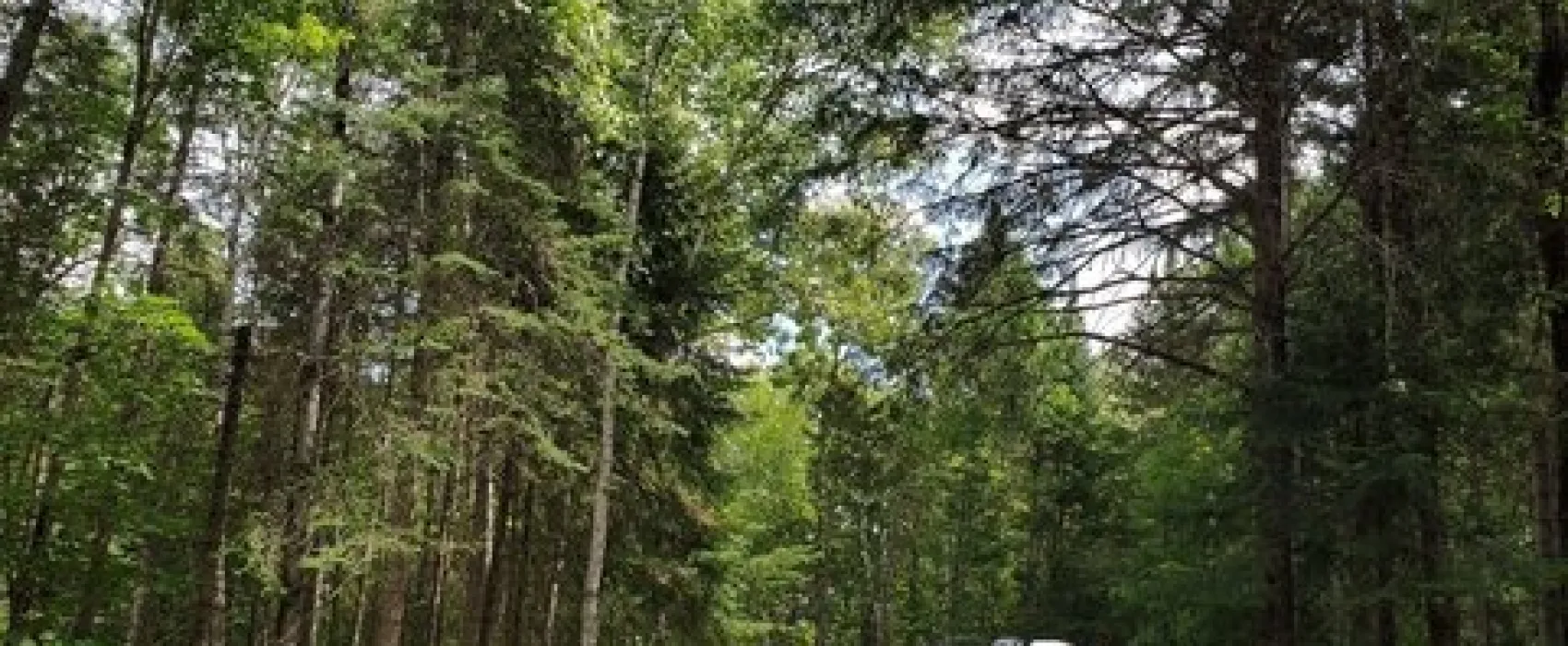Campingplads åbnet fra 01 January til 31 December
Denne campingside er ikke godkendt af Spottocamp. Er du ejeren? Kontakt os via knappen nedenfor.
Jeg er ejeren
In 1938, interested citizens of Presque Isle donated 100 acres of land to the State with the hope of creating Maine's first state park. This hope became reality is 1939, with the creation of Aroostook State Park. Subsequent donations increased the park to its present size of over 600 acres. Encompassing Quaggy Jo Mountain and Echo Lake, the park provides year-round recreational activities. Rising abruptly from the surrounding farmlands, the most prominent feature of Aroostook State Park is Quaggy Jo Mountain. Uplifted by folding of the earth's crust, weathered and shaped by glaciation through time, Quaggy Jo offers a unique chance to study our geologic past. The underlying limestone formations mark the presence of an ancient sea, and the mountain's outer layer of volcanic rock suggests a later lava flow of an unknown origin. Quaggy Jo is the shortened form of its Indian name "QuaQuaJo". A popular translation for QuaQuaJo is "twin peaked". The park's natural areas are typical of northern Maine. Its forest consists mainly of a mixture of spruce, fir, beech, and maple along with younger stands of poplar, birch, and other hardwoods. In the park's low swampy areas, dense stands of cedar can be found. A wide variety of birds and mammals live within the park. While squirrels and chipmunks are most frequently seen, fox, deer, moose and bear also rail the park "home". Birds of all types are found here, too, including hawks, owls and woodpeckers.
Karakteristiske campingpladser
Klik her hvis informationen om denne campingside ikke er korrekt eller er ufuldendt
Billeder
Vurderinger









